Unlikely Gardeners: Animals With Accidental Green Thumbs
Ever had a plant or flower sprout up out of nowhere? Your backyard wildlife friends may be responsible. Check out this list of critters who have mad gardening skills.
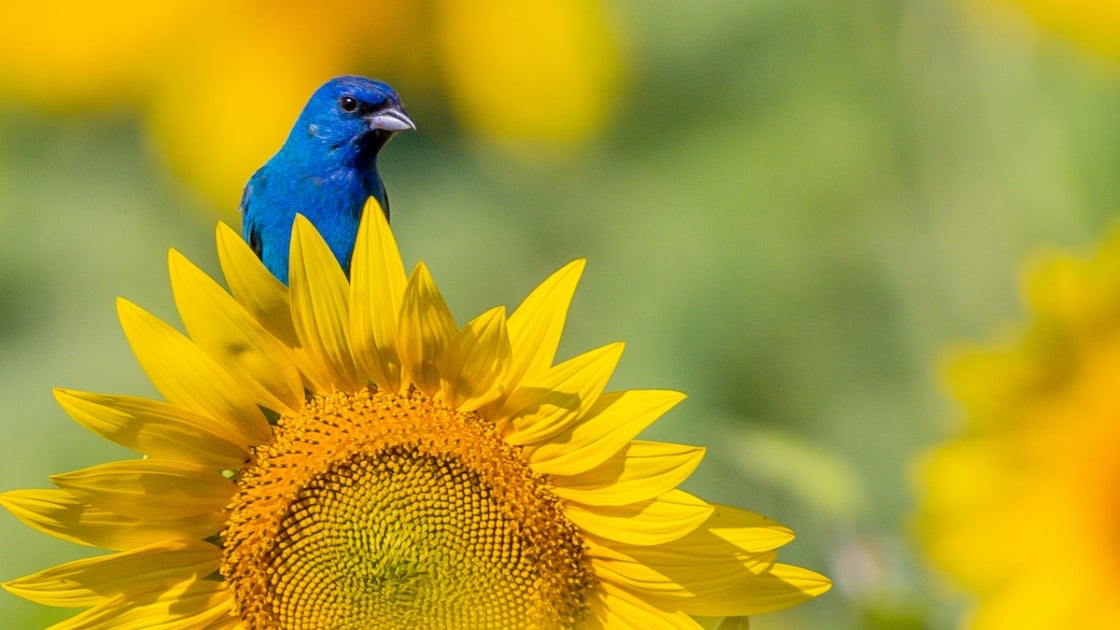
Have you ever taken a moment to admire your garden work and noticed plant shoots springing up where you didn’t seed them? It’s a puzzle that likely left you wondering: how on earth did those get there? The short answer is the wildlife wandering through your garden beds and backyard! From seed sowers to weed whackers, here are five creatures who are unintentional pros at helping your garden grow.
5 “Accidental” Animal Gardeners
1. Songbirds – Messy Eaters, Seed Scatterers
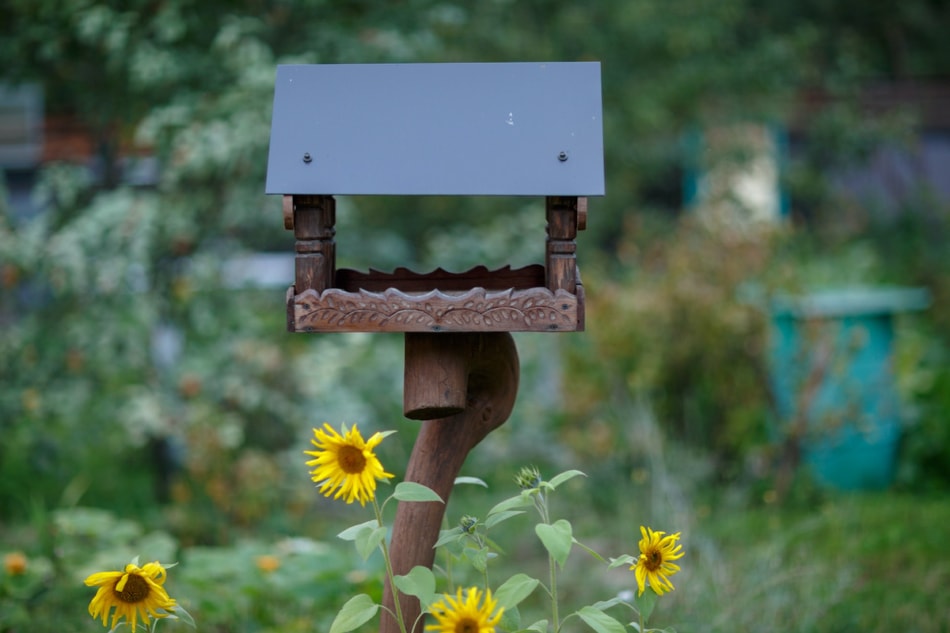
Birds eat seeds. But when dining at feeders and bird baths, they also spill them. If left on the ground, birdseed will sprout where it lands, creating impromptu patches of wildflowers and weeds among the grass.
2. Hummingbirds – Pretty Pollinators
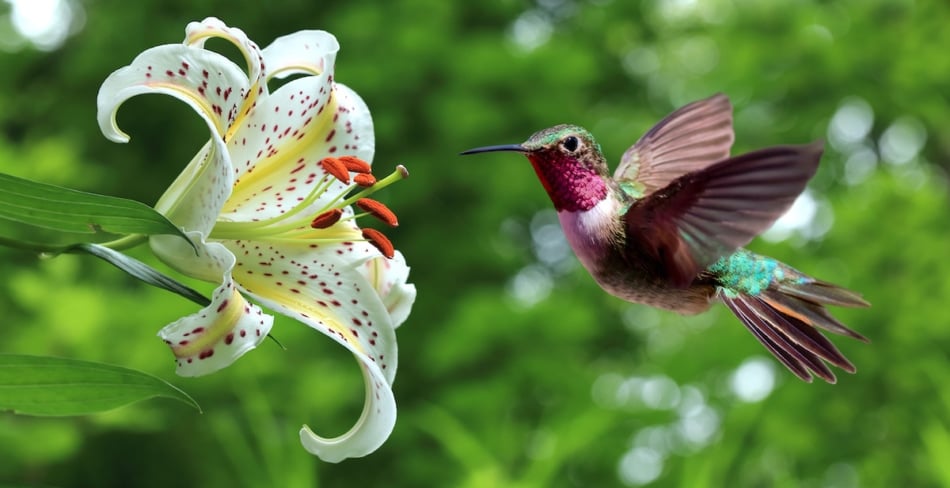
Like bees and butterflies, hummingbirds are “pollinators,” meaning they help flowers and trees reproduce. Hummingbirds pollinate plants through the simple act of eating. As the tiny birds stick their needlelike bills into trumpet vine, fuchsia, and foxglove blooms to sip nectar, pollen is disturbed within the flower. It sticks to hummingbirds’ bills and is transferred to new blooms as the tiny birds visit neighboring flowers. While pollination doesn’t make flowers bloom, as many as 80% of plants require it to bear fruit or to produce new seeds that grow new plants.
3. Squirrels & Chipmunks – Secret Sowers
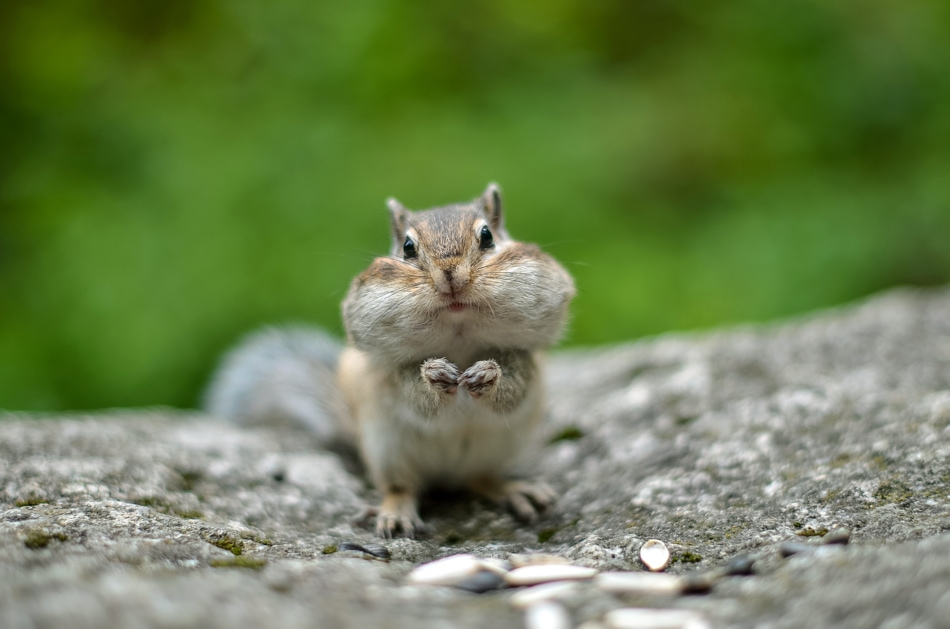
To sustain themselves when plants are scarce during cooler months, squirrels—and their striped cousins chipmunks—feverishly gather and store seeds and nuts (and acorns, walnuts, tulip, and crocus bulbs). But if squirrels and chipmunks work up such a fuss that they drop seeds before burying them, or forget where they hid a secret stash, these misplaced meals might reappear as “surprise” sunflowers or saplings in flowerpots and lawns.
3. Earthworms – Soil Tillers
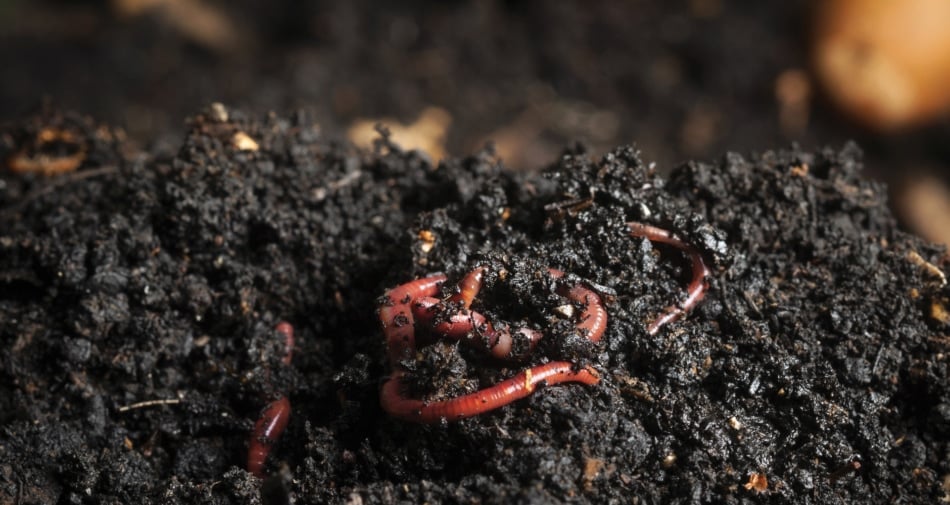
Earthworms are nature’s soil tillers. As they journey underground, burrowing through dirt, they loosen compact soil. This not only aerates the soil, making oxygen and other nutrients more accessible to plants, it also allows for better drainage since water is able to filter more quickly down to the roots.
Earthworms also aid in composting—they eat bacteria, fungi, and small organisms in dirt, making it richer in nutrients) and help neutralize soil pH.
4. Turtles & Tortoises – Weed Wackers
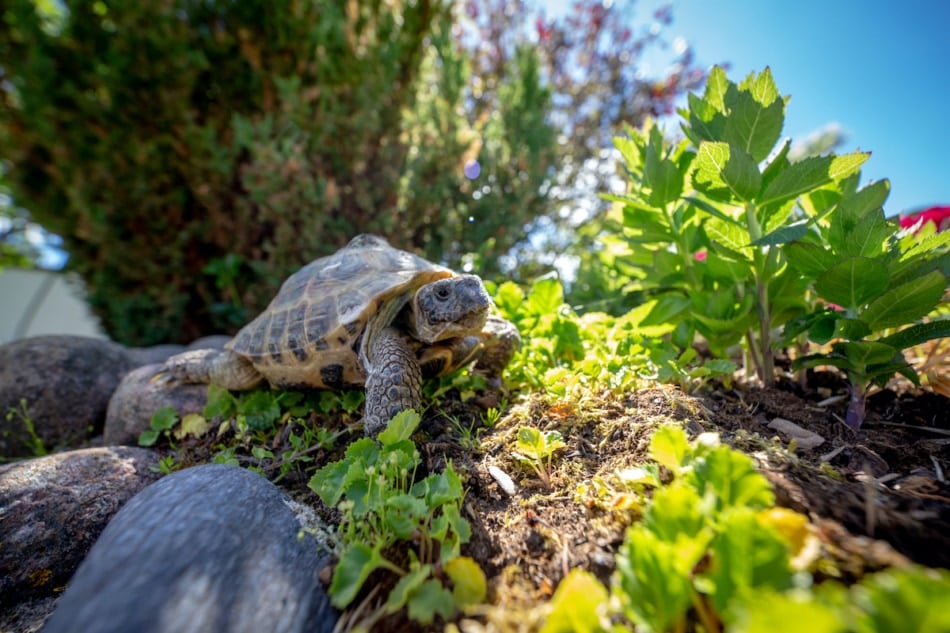
This one might be a surprise! Terrestrial turtles, freshwater turtles, and tortoises occasionally creep into gardens in search of cool, damp spots to rest and refuel. While turtles may eat garden lettuces, fruits, and vegetables if given the chance, they also make meals of destructive garden insects (like caterpillars and slugs) and intruder-weeds (like dandelions, clover, and mallow).
5. Deer, Rabbits, Bears – Seed Scatterers
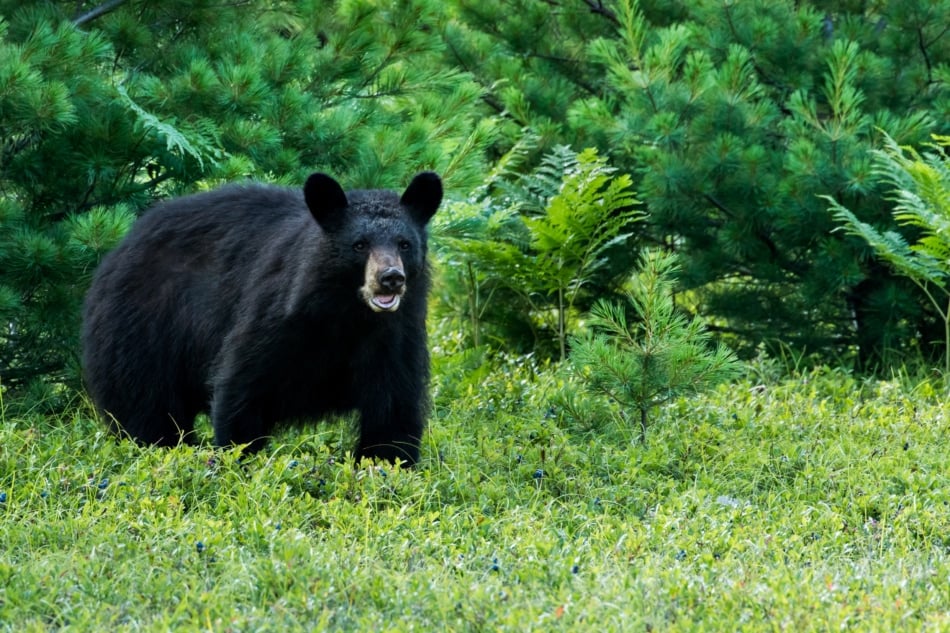
These creatures are often unwelcome visitors to gardens and backyards, but despite taste-testing foliage and fruits, their activities aren’t entirely destructive. After fruits are eaten, their hard, inner seeds pass through these animals’ digestive tracts and make their way back to the earth (albeit miles away from a garden) via the animals’ droppings. This manner of seed scattering is quite common and is especially beneficial for the propagation and livelihood of native plants and wildflowers that are unique to local regions.
Weigh In
Do you have “accidental gardeners” in your backyard? Have you seen flowers or greenery pop up in an unlikely spot? Tell us in the comments below!

Tiffany Means
Tiffany Means is a freelance writer and a degreed meteorologist. She specializes in weather forecasting and enjoys making the subject of weather (and the science behind it) more relatable. She currently resides in the Blue Ridge Mountains of North Carolina.




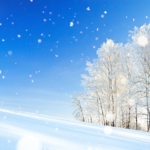

Yah sure… Bears scatter seeds Al over here… ????
Love your stories. Your titles are irresistible. They always draw me in to read the story. Very educational.
We’re glad you enjoy them, Faye!